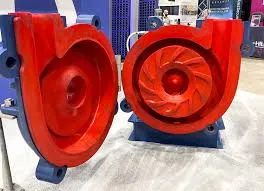Russian
- Afrikaans
- Albanian
- Amharic
- Arabic
- Armenian
- Azerbaijani
- Basque
- Belarusian
- Bengali
- Bosnian
- Bulgarian
- Catalan
- Cebuano
- Corsican
- Croatian
- Czech
- Danish
- Dutch
- English
- Esperanto
- Estonian
- Finnish
- French
- Frisian
- Galician
- Georgian
- German
- Greek
- Gujarati
- Haitian Creole
- hausa
- hawaiian
- Hebrew
- Hindi
- Miao
- Hungarian
- Icelandic
- igbo
- Indonesian
- irish
- Italian
- Japanese
- Javanese
- Kannada
- kazakh
- Khmer
- Rwandese
- Korean
- Kurdish
- Kyrgyz
- Lao
- Latin
- Latvian
- Lithuanian
- Luxembourgish
- Macedonian
- Malgashi
- Malay
- Malayalam
- Maltese
- Maori
- Marathi
- Mongolian
- Myanmar
- Nepali
- Norwegian
- Norwegian
- Occitan
- Pashto
- Persian
- Polish
- Portuguese
- Punjabi
- Romanian
- Russian
- Samoan
- Scottish Gaelic
- Serbian
- Sesotho
- Shona
- Sindhi
- Sinhala
- Slovak
- Slovenian
- Somali
- Spanish
- Sundanese
- Swahili
- Swedish
- Tagalog
- Tajik
- Tamil
- Tatar
- Telugu
- Thai
- Turkish
- Turkmen
- Ukrainian
- Urdu
- Uighur
- Uzbek
- Vietnamese
- Welsh
- Bantu
- Yiddish
- Yoruba
- Zulu
Telephone: +86 13120555503
Email: frank@cypump.com
Сен . 04, 2024 09:16 Back to list
pump sewer system
Understanding the Pump Sewer System An Essential Infrastructure for Wastewater Management
The efficient management of wastewater is essential for maintaining public health and protecting the environment. One critical component of this management system is the pump sewer system, designed to transport sewage and wastewater from lower elevation areas to treatment facilities. This system plays a vital role in urban planning, especially in regions where gravity flows are not feasible.
A pump sewer system typically comprises several key components pump stations, pipes, and control systems. The pump stations are strategically located to lift and propel wastewater through a network of underground pipes. They are equipped with powerful submersible pumps that can handle varying flow rates and solids content in the sewage. The design and positioning of these pump stations are crucial; they must be situated to optimize energy efficiency and maintain reliable operation.
One of the most significant advantages of a pump sewer system is its ability to serve low-lying or remote areas where gravity sewer systems would be impractical. By utilizing pumps to lift sewage to a higher elevation, these systems enable the extension of sewer services, improving sanitation and quality of life for residents in hard-to-reach locations. Moreover, pump sewer systems can help protect against flooding by managing excess stormwater and reducing the risk of overflows.
pump sewer system

In terms of maintenance, pump sewer systems require regular inspections and servicing to ensure their reliability. Pump failure can result in backups and overflows, leading to environmental contamination and public health risks. Therefore, municipalities often implement monitoring systems to track pump performance and trigger alarms for any discrepancies. Preventative maintenance programs can also extend the life of the equipment and reduce the occurrence of emergency repairs.
Despite their benefits, pump sewer systems can be subject to challenges. The initial installation costs can be higher than traditional gravity systems, particularly in areas with challenging terrain. Additionally, the energy consumption of pumps can be significant, leading to ongoing operational costs. Thus, engineers and planners must carefully assess the cost-benefit balance when designing and implementing these systems.
In conclusion, the pump sewer system is an indispensable element of modern wastewater management. By leveraging technology and engineering principles, these systems facilitate the efficient handling of sewage, especially in areas where traditional methods may fall short. As urban populations continue to grow and environmental concerns become more pressing, the role of pump sewer systems will undoubtedly remain crucial in promoting sustainable and healthy communities.
-
Heavy-Duty Mining Sludge Pumps - Wear-Resistant Slurry Handling
NewsAug.02,2025
-
Horizontal Split Case Pump with GPT-4 Turbo | High Efficiency
NewsAug.01,2025
-
ISG Series Pipeline Pump - Chi Yuan Pumps | High Efficiency, Durable Design
NewsAug.01,2025
-
Advanced Flue Gas Desulfurization Pump with GPT-4 Turbo | Durable & Efficient
NewsJul.31,2025
-
ISG Series Vertical Pipeline Pump - Chi Yuan Pumps | Advanced Hydraulic Design&Durable Construction
NewsJul.31,2025
-
ISG Series Vertical Pipeline Pump - Chi Yuan Pumps | Energy Efficient & Low Noise
NewsJul.31,2025










